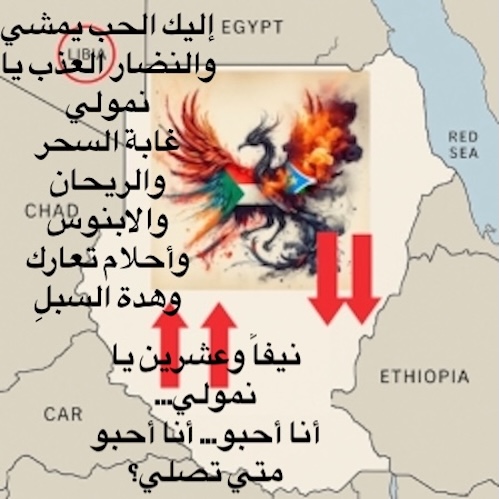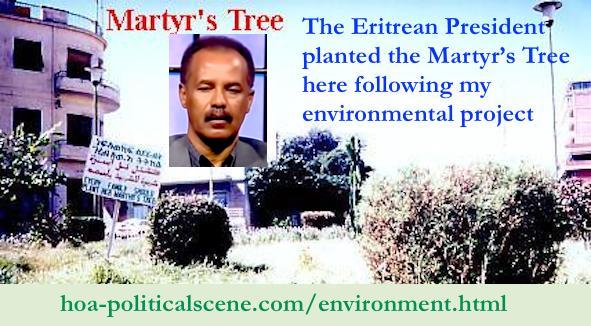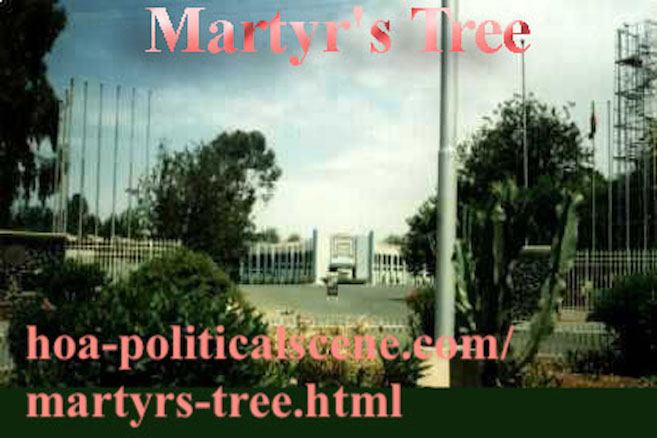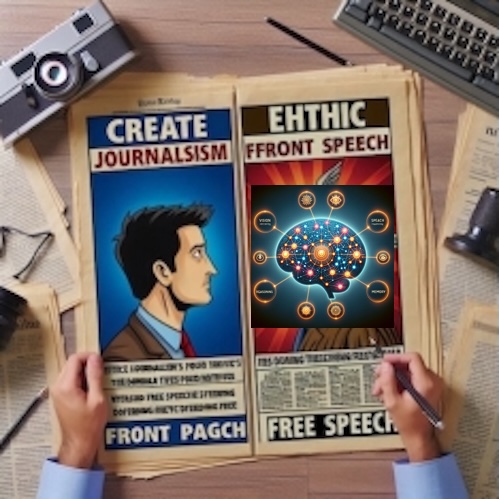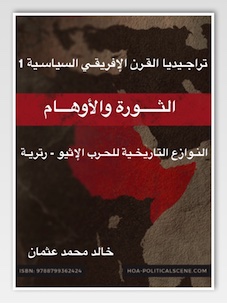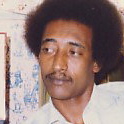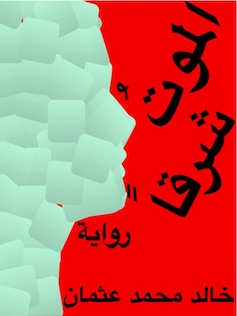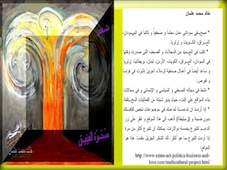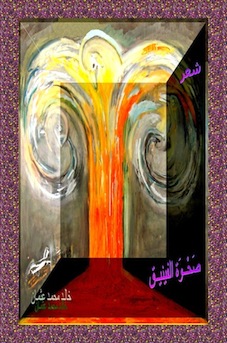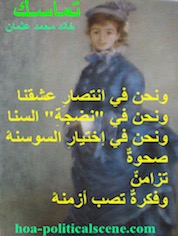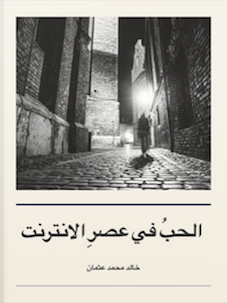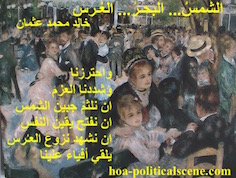Competing Parties Overlooked Sudan's Unity!
Competing Parties Overlooked Sudan's Unity: "Their downfall began the moment they lost sight of who they were." This is the cornerstone of all the Sudanese problems until this recent moment in August 2025. Things may change. So, a date of publishing is required. From the days of the independence, the sectarian political parties in northern Sudan have overlooked Sudan's unity... meaning strategic and symbolic unity among Sudanese political parties based on their understanding to their country real identity during the final years of colonial rule, particularly in the early 1950s.
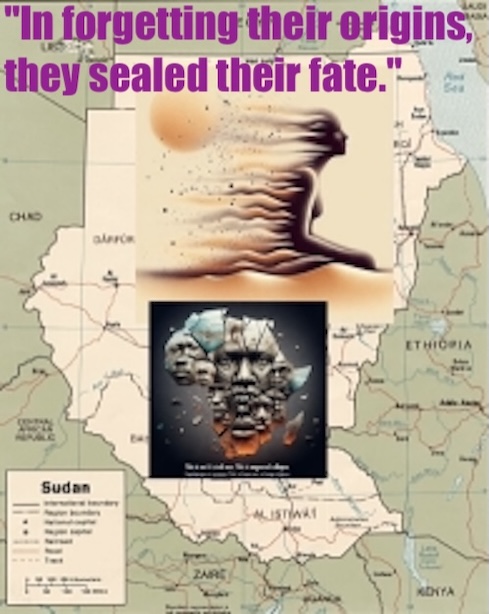 Competing Parties Overlooked Sudan's Unity - A Nation Lost: "In forgetting their origins, they sealed their fate." This has happened to the largest land in Africa, called once Sudan. A country called Sudan does not exist today. The recent one in the maps is not Sudan, but a fractured part of it.
Competing Parties Overlooked Sudan's Unity - A Nation Lost: "In forgetting their origins, they sealed their fate." This has happened to the largest land in Africa, called once Sudan. A country called Sudan does not exist today. The recent one in the maps is not Sudan, but a fractured part of it.Even the unity of these sectarian parties in the forms of changes with a coming democracy in sight, has been based on party competition and concentrated on party wining, at the time that required a nationwide knowledge.
🧭 What "Unity" Meant in Sudan's Pre-Independence Politics?
1. Shared Goal of Independence
- Despite ideological differences, major parties like the National Unionist Party (NUP), Umma Party, and Southern Sudanese political groups were united in their opposition to continued British-Egyptian rule.
- This unity was not ideological but instrumental, a temporary alignment around the goal of achieving sovereignty.
2. Coalition Governments and Parliamentary Cooperation
- In the lead-up to independence (especially around 1953–1956), parties formed coalition governments to manage the transition.
- The NUP, which favored unity with Egypt, and the Umma Party, which leaned toward full Sudanese independence, still cooperated in parliamentary processes and governance... albeit uneasily.
3. Nationalist Sentiment Across Regions
- There was a broad nationalist sentiment that transcended party lines, especially among urban elites, students, and trade unions.
- Even southern parties, though advocating federalism, participated in the early parliamentary system, hoping for a more inclusive Sudan.
🧨 Why That Unity Was Fragile and Short-Lived?
- Ideological divergence (e.g., Arab nationalism vs. Sudanese nationalism vs. federalism) quickly resurfaced once independence was achieved.
- Regional exclusion, especially of southern voices, fractured the sense of national cohesion.
- Power struggles between parties led to instability, paving the way for military intervention.
So the "unity" I referenced was more of a coalitional and transitional unity, forged under the pressure of colonial exit, not a deep or lasting ideological alignment. It was a moment of convergence that quickly gave way to fragmentation once the common enemy (colonial rule) was gone.
That was not only the dilemma during the independence, but, the same dilemma that followed during the national governments. It continued during the so-called democratic periods led by the Sudanese sectarian parties, through which military adventurers found gabs to overthrow these race and religious biased governments and continue to press the southern Sudan and increase the "unity" problem.
In addition, the National Unionist Party's idea about the unity with Egypt presented a deep gab in the minds of the leaders of the party who looked at a foreign country at the north os Sudan, instead of looking inside Sudan while it was at birth to see the clear factors that could have possibly shifted their poor thinking.
🧩 From Uncertainty of Unity to Fragmentation: The Rise and Fall of Sudanese Party Coalitions!
Sudan's political landscape, in the wake of independence, was marked by a fleeting sense of unity. Political parties emerged with shared aspirations for sovereignty, national identity, and democratic governance. Yet beneath this surface lay deep fissures... ethnic, ideological, and regional that would soon unravel the fragile coalitions and plunge the nation into cycles of division and instability.
The Promise of Unity
In the early 1950s, as Sudan edged closer to independence, parties like the Umma Party, National Unionist Party (NUP), and Sudan Communist Party (SCP) played pivotal roles in shaping the political discourse. These groups, though ideologically distinct, found common ground in opposing colonial rule and advocating for Sudanese self-determination.
Coalitions were formed not out of ideological harmony but necessity... a shared desire to present a united front to the British-Egyptian condominium. The NUP, with its ties to Egypt and support for unity with the Arab world, clashed with the Umma Party, which leaned toward Sudanese nationalism and independence. Still, the urgency of liberation kept these tensions temporarily at bay.
Cracks Beneath the Surface
Once independence was achieved in 1956, the ideological differences that had been suppressed began to surface. The Umma Party and NUP quickly fell into rivalry, each vying for dominance in the new political order. The Sudan Communist Party, though influential in labor and student movements, faced increasing repression as Cold War tensions seeped into domestic politics.
Regional disparities also played a role. Southern Sudanese parties, such as the Southern Sudan Federal Party, demanded autonomy and federalism. These demands largely ignored by northern political elites. This neglect sowed seeds of rebellion and exposed the limits of national unity.
Fragmentation and Fallout
By the 1960s, Sudan's party system had splintered. Coalitions collapsed, and military coups began to punctuate the political timeline. The 1958 coup led by General Ibrahim Abboud marked the beginning of military dominance, sidelining civilian parties and suspending democratic institutions.
Even when civilian rule returned briefly in the 1960s and 1980s, party fragmentation persisted. Ideological rigidity, personal rivalries, and lack of inclusive governance prevented the formation of stable coalitions. The rise of Islamist movements in the 1980s further polarized the landscape, culminating in the 1989 coup by Omar al-Bashir, which was a turning point that entrenched authoritarianism and marginalized traditional parties.
Conclusion
Sudan's post-independence political history is not a tale of sustained unity, but of fleeting coalitions and enduring fragmentation. The inability of parties to reconcile ideological and regional differences weakened democratic foundations and paved the way for military rule. Understanding this trajectory is essential to grasping Sudan's ongoing struggle for inclusive governance and national cohesion.
🕌 Islamist Movements and the Reshaping of Sudanese Political Identity!
Sudan's political identity has long been a battleground of competing ideologies... nationalism, socialism, federalism, and Islamism. Among these, Islamist movements have had a profound and lasting impact, not only on governance but on the very fabric of Sudanese society. From grassroots mobilization to state capture, Islamism reshaped Sudan's political narrative, often at the expense of pluralism and civil liberties.
Early Roots and Religious Foundations
Islamist political thought began to gain traction in Sudan during the 1940s and 1950s, influenced by the rise of the Muslim Brotherhood in Egypt and the broader pan-Islamic revival across the Arab world. Sudanese intellectuals and students, particularly in universities, began to embrace the idea of an Islamic state governed by Sharia law.
The Islamic Charter Front (ICF), founded in the 1960s out of the Muslim Brothers party, became the political arm of this movement. Led by Hassan al-Turabi, a charismatic scholar and strategist, the ICF sought to embed Islamic principles into the political system, challenging secular and leftist ideologies.
The Rise of Political Islam
The 1980s marked a turning point. Amid economic crisis, civil war, and political instability, Islamist movements gained momentum. The National Islamic Front (NIF), an evolution of the ICF, capitalized on public disillusionment with traditional sectarian parties and positioned itself as a moral alternative.
In 1989, the NIF organised a military coup led by Omar al-Bashir, ushering in a new era of Islamist governance. Under Turabi's religious guidance, the regime implemented Sharia law nationwide, restructured education to reflect Islamic values, and purged secular voices from public institutions.
This devil of islamic party has launched a grassroots network through the educational institutions and changed the African Islamic Centre into a university. This center provided the party with Sudanese members. It has also many students from other states in west Africa... meaning preparing them as extensions to islamic phobias in those countries.
Islamism and State Power
The party changed its name for the third time to the National Islamic Front (NIF) pursuing what I have described as a "policy of burning the political stages in Sudan". The NIF's control over the state was comprehensive. It infiltrated the military, judiciary, media, and civil service, creating a parallel power structure rooted in Islamist politics.
Political dissent was crushed, and opposition parties especially those advocating secularism or regional autonomy were banned. The national military was totally changed by expelling the national officers and replacing them by the soldiers of the party. Many of those who rejected this action were imprisoned and tortured. Many left the country.
Sudan's foreign policy also shifted. The regime hosted radical figures like Osama bin Laden in the 1990s and aligned itself with global Islamist causes, leading to the formation of al-Qaeda. International isolation and U.S. sanctions have been announced to cover the real story of the beginning of the Afghani rebel and its development to al-Qaeda.
Fragmentation and Decline
Despite its initial dominance, the Islamist project began to fracture in the late 1990s. A power struggle between Turabi and Bashir led to Turabi's ousting and the weakening of political coherence. Internal corruption, economic collapse, and the secession of South Sudan in 2011 further eroded the regime's legitimacy.
The real story about what has happened between al-Turabi and al-Bashir was not a conflict between the two charters, but it was one of the tactical plays the Muslim Brothers of Sudan are good at performing, when they expect any rise to public movement. They did the same tactic in October 1964 and in April 1985.
By the time Bashir faced strong Sudanese protests until 2019, the Islamist rule was at great risk. A move happened in a coup has failed and the remnants of al-Bashir with their Janjaweed took power to continue al-Bashir's legacy in laws, institutions, and political culture, which had remained and deeply embedded.
They played a successful political game with the group of Freedom and Change to reach an agreement that stopped the protests, until the war broke between these two rivals in al-Bshir's continued system.
Conclusion
Islamist movements in Sudan transformed the country's political identity, offering a vision of governance rooted in religious laws. While they succeeded in capturing the state, their failure to deliver justice, inclusivity, and prosperity ultimately showed their betrayal to their people and even to their religion.
When the killing and torture of other Muslims who have not committed any crime and the only thing they did was protesting for their rights is haram in Islam, so what is really their religion?
The challenge for Sudan today is to reconcile its diverse identities and build a political system that reflects both its multi-faiths, equality and freedom.
🪖 Military Coups and the Cycles of Authoritarianism in Sudan!
Sudan's post-independence history is punctuated by a series of military coups that have repeatedly disrupted democratic progress. Each coup promised stability, reform, or national salvation, yet most delivered authoritarianism, repression, and further fragmentation. Understanding these cycles is key to grasping Sudan's enduring struggle for civilian rule.
The First Coup: 1958
Just two years after independence, Sudan experienced its first military coup. General Ibrahim Abboud seized power, citing political gridlock and the need for national unity. His regime dissolved parliament, banned political parties, and centralized authority under military rule.
While initially welcomed by some segments of society, Abboud's government soon faced resistance, particularly over its handling of the southern question. His attempt to impose Arab-Islamic identity on the south sparked unrest, leading to the October Revolution of 1964, which restored civilian rule.
The Second Coup: 1969
In 1969, Colonel Jaafar Nimeiri led another coup, this time with support from leftist and socialist factions. Nimeiri's early years saw ambitious reforms... land redistribution, nationalization, and attempts to resolve the north-south conflict through the Addis Ababa Agreement of 1972.
However, Nimeiri's regime gradually shifted toward authoritarianism. He dissolved political parties, suppressed dissent, and eventually embraced Islamism, associated with al-Turabi, and declared Sharia law in 1983. This reversal reignited civil war and alienated southern communities, setting the stage for his downfall in 1985.
During the first two years, his colleagues from the coup led by Hashim al-Atta attempted to stop him and launched a counter-coup on July 19, 1971. However, it ultimately failed due to the absence of essential logistical foundations: infrastructure, planning, and coordination.
These are critical procedures that should have followed immediately after the arrest of al-Nimeiri, supported by organizational backup from both the coordinating military units in standby position and the General Union of Sudanese Workers.
In contrast, the party of the Muslim Brothers taking the NIF name learned from the failure of the 1971 coup and applied those lessons during the successful coup of June 30, 1989, which brought Omar al-Bashir to power.
This time, the operation was meticulously planned and executed with a solid logistical foundation: a well-established infrastructure, coordinated military units, and strategic timing. Crucially, they secured organizational support from key institutions, including loyal elements within the armed forces and civil service, ensuring swift control of communication channels, government buildings, and public perception.
The Third Coup: 1989
The most consequential coup came in 1989, when Omar al-Bashir, backed by the National Islamic Front, overthrew the elected government of Sadiq al-Mahdi. During that time the NIF had the third majority in the so-called parliament. Bashir's regime combined military control with Islamist groups established by the NIF, creating a deeply repressive state apparatus.
Under Bashir, Sudan witnessed:
- Purging of the National Army: National soldiers were expelled, while others were imprisoned, tortured, or executed to eliminate dissent within the military ranks.
- Militarization of the National Islamic Front (NIF): Key military and security positions were filled with loyalists from the NIF, sidelining professional officers and consolidating complete control.
- Nationwide Enforcement of Sharia Law: Islamic law was imposed across Sudan, marginalizing non-Muslim communities and exacerbating religious tensions, especially in the south.
- Formation of Jihadist Militias: Paramilitary groups were created under NIF command, tasked with suppressing opposition and waging religious warfare, particularly in conflict zones and Nuba Mountains.
- Creation and Arming of the Janjaweed: The regime funded and armed the Janjaweed militia, unleashing them in Darfur to carry out brutal campaigns of ethnic cleansing.
- Systematic Repression of Dissent: Political opposition, civil society, and independent media were silenced through arrests, censorship, intimidation, and violence.
- Darfur Genocide: The conflict in Darfur escalated into mass atrocities, including widespread killings, rapes, and displacement, recognized internationally as genocide.
- Collapse of Democratic Institutions: Bashir dismantled democratic structures, suspended the constitution, and ruled by decree, eliminating checks on executive power.
- Economic Mismanagement and Corruption: Rampant corruption and misallocation of resources led to economic collapse, hyperinflation, and widespread poverty.
- Empowerment of Islamic Banks with Predatory Practices: Bashir's regime bolstered Islamic financial institutions that engaged in exploitative lending and currency manipulation, contributing to the erosion of Sudan's national economy and weakening the pound.
- International Isolation: Sudan faced sanctions and condemnation, with Bashir indicted by the International Criminal Court for crimes against humanity and war crimes.
- Fueling of Civil Wars: Bashir's policies intensified the North-South divide, contributing to the Second Sudanese Civil War and ultimately the secession of South Sudan in 2011.
Despite multiple peace agreements and elections, Bashir maintained power through manipulation and force until faced the 2019 popular uprising.
Conclusion
Sudan's history of military coups reveals a tragic cycle, each intervention undermines democratic institutions, concentrates power, and deepens societal divisions. Breaking this cycle requires not just removing military rulers, but fundamentally restructuring civil-military relations and building resilient democratic institutions.
Intertwined Pages with "Competing Parties Overlooked Sudans Unity"!
This page "Competing Parties Overlooked Sudans Unity" comes among a sequent of 4 pages started at How Islamic Parties Repackaged Belief in Sudan and continued at How Were Political Parties Founded in Sudan, Competing Parties Overlooked Sudan's Unity (this page) and Seeds of South Sudan's Secession: Neglect of Northern Elites!
All of these 4 pages in this sequent are interconnected with other pages in the section titled "Psychological Fear of Change: Fractured Sudan". The following are the titles of those interconnected pages, including this one:
Psychological Fear of Change has contributed to the fracture of the largest country in Africa:
- Personal Encounter with Fear: How Fear Devastated an Entire Country? (Part #1)
- Sudan as a Modern Case Study of Fear-Driven Collapse! (Part #2)
- Fear and Collective Behavior: How Dogma, Nostalgia, and Religion Shaped Sudan’s Destiny? (Part #3)
- Reimagining Progress: How to Overcome Fear on Personal and Collective Levels? (Part #4)
- The Anatomy of Fear: Lessons from Sudan and the Psychology of Change! (Part #5)
- How Islamic Parties Repackaged Belief in Sudan? (Part #6)
- Janjaweeds Conspiracy and Politics of Myth in Sudan (Part #7)
- Forces of Freedom and Change Destroyed Sudan (Part #8)
- How Sudan Lost Its African Soul: The Disappearance of Joy (Part #9)
- Sudan Is Not a Pawn in Any Political Game! (Part #10)
- How Sudan Was Hollowed from the Inside? A Scheme of Erasure! (Part #11)
- Rising of the Phoenix - From Poetry to the Real Life of a Nation (Part #12)
- How Widely Held Views Make Sudanese Selfish and Weak? (Part #13)
- A Manifesto for the Rebirth of the Sudanese Real Identity! (Part #14)
- Let Us Bring Sudan Home! (Part #15)
- Crisis in Sudan is Not Civil War! (Part #16)
- Muslim Brothers of Sudan from Foundation to Fragmentation! (Part #17)
- Sudan From International Terrorism Patron to Prosecutor! (Part #18)
- Has International Terrorism Disappeared? (Part #19)
- How Were Political Parties Founded in Sudan? (Part #20)
- Competing Parties Overlooked Sudan's Unity! (Part #21)
- Seeds of South Sudan's Secession - Neglect of Northern Elites! (Part #22)
Continue at Seeds of South Sudan's Secession - Neglect of Northern Elites! (Part #22)
However, you'll find it with the complete insights on the Sudanese political issues on these pages among the sections of the Global Dynamics. Most importantly, if you are thinking of saving Sudan, there is not any possible way, than to understand the Action Guide and implement it entirely to lay the grounds for change.
The Global Dynamics Help You Understand the Causes of Deterioration in the World!
While the Global Dynamics help you understand what is going on in the world, they also propose solutions to these dilemmas we have in our lives. The Action Guide of the International Dynamics offer a way map to end these dilemmas.
The Global Dynamics help you understand what is going on in the world, they also propose solutions to these dilemmas we have in our lives. The Action Guide of the International Dynamics offer a way map to end these crises. If you understood and agree with the lessons learned from this quote "When they turned from their roots, they were lost", or if you liked the Global Dynamics, subscribe to Intelligentsia Newspaper.
Competing Parties Overlooked Sudan's Unity! What a Loss?: Exploring the Unknown: Life, Environment & Cybersecurity! [Latest on The Insight Lens: May 06, 2025]Competing Parties Overlooked Sudan's Unity! What a Loss?: Space Exploration vs. Earth's Survival: The Real Dilemma! [Latest on The Insight Lens: Tuesday, May 06, 2025]
Competing Parties Overlooked Sudan's Unity! What a Loss?: Space Exploration: A Double-Edged Sword? [Latest on The Insight Lens: Wednesday, May 07, 2025]
Competing Parties Overlooked Sudan's Unity! What a Loss?: Space Wars: The Next Frontier! [Latest on The Insight Lens: Thursday, May 08, 2025] Follow the Insight Lens, or WellnessTravels
Competing Parties Overlooked Sudan's Unity! What a Loss?: Are We Repeating Colonial Mistakes in Space? [Latest on The Insight Lens: Thursday, May 08, 2025]
Competing Parties Overlooked Sudan's Unity! What a Loss?: From Colonial Empires to Space Frontiers: Lessons Unlearned [Latest on The Insight Lens: May 9, 2025]
Competing Parties Overlooked Sudan's Unity! What a Loss?: The Hidden Dangers of Space Exploration: Are We Going Too Far? [Latest on The Insight Lens: May 10, 2025]
Competing Parties Overlooked Sudan's Unity! What a Loss?: Space Exploration: Worth the Risk or Too Costly? [Latest on The Insight Lens: May 10, 2025]
Competing Parties Overlooked Sudan's Unity! What a Loss?: Climate Change: Myths vs. Reality! [Latest on The Insight Lens: Monday, May 05, 2025]
Competing Parties Overlooked Sudan's Unity! What a Loss?: Biovians Speak: Trade Wars & Climate Crisis Through Nature’s Voice [The Insight Lens: 2025-04-24]
Competing Parties Overlooked Sudan's Unity! What a Loss?: Robot Debate: Science & Innovation Breakthroughs! [Latest on The Insight Lens: Monday, May 05, 2025]
Competing Parties Overlooked Sudan's Unity! What a Loss?: How Trump’s Tariffs Led to Price Hikes & Consumer Resistance? [The Insight Lens]
Competing Parties Overlooked Sudan's Unity! What a Loss?n: The Age of Gold: How Trade Wars and Economic Policies Shape the Future? [Latest on The Insight Lens: 2025-04-25]
Competing Parties Overlooked Sudan's Unity! What a Loss?: Robots Delivering Breaking News: Today's Global Highlights! [The Insight Lens: 2025-04-25]
Competing Parties Overlooked Sudan's Unity! What a Loss?: The World is Heating Amid Trade Wars – A Crisis Ignored! [Latest on The Insight Lens: 2025-04-24]
Competing Parties Overlooked Sudan's Unity! What a Loss?: Trade Wars: US vs China Showdown! [Latest on The Insight Lens: 2025-04-16] Competing Parties Overlooked Sudan's Unity! What a Loss?: Trade Wars - Trump's Tariffs Tango: Strategy or Show? [The Insight Lens: 2025-04-25]
Competing Parties Overlooked Sudan's Unity! What a Loss?: Biovians Speak: Trade Wars & Climate Crisis Through Nature’s Voice [The Insight Lens: 2025-04-24]
Competing Parties Overlooked Sudan's Unity! What a Loss?: Trade Wars Reflect The Hidden Agenda of Free-Market Capitalism! [Latest on The Insight Lens: 2025-04-19]
Competing Parties Overlooked Sudan's Unity! What a Loss?: What If Trade Wars Were Like Beekeeping? [Latest on The Insight Lens: 2025-04-18]
Competing Parties Overlooked Sudan's Unity! What a Loss?: Trade Wars from History to Cultural Shock! [Latest on The Insight Lens: 2025-04-19]
Competing Parties Overlooked Sudan's Unity! What a Loss?: Investors Pay Attention: Trade Wars & Your Wallet: Survive & Thrive! [Latest on The Insight Lens: 2025-04-19]
Competing Parties Overlooked Sudan's Unity! What a Loss?: Digital Marketers Pay Attention: Navigating the Storm [Latest on The Insight Lens: 2025-04-19]
Competing Parties Overlooked Sudan's Unity! What a Loss?: Entrepreneurs Attention: Trade Wars: Online Income Survival Guide [Latest on The Insight Lens: 2025-04-19]
Competing Parties Overlooked Sudan's Unity! What a Loss?: Tech Enthusiasts Pay Attention: China Gadget Powerhouse of World [Latest on The Insight Lens: 2025-04-19]
Competing Parties Overlooked Sudan's Unity! What a Loss?: China's Gadget Powerhouse vs. Trade Wars: Who Really Pays? [Latest on The Insight Lens: 2025-04-19]
Competing Parties Overlooked Sudan's Unity! What a Loss?: Trade Wars: China's Grip on Wellness Products! [Latest on The Insight Lens: 2025-04-22]
Competing Parties Overlooked Sudan's Unity! What a Loss?: Navigating Global Chaos: Leadership in Trade Wars and Diplomacy! [Latest on The Insight Lens: 2025-04-22]
The Eritrean Martyr's Tree has been a successful project that resulted from my environmental activities, planning, fundraising, meeting, broadcasting and leading all of the Eritrean society to plant more than 5 million martyr's trees. Un fortunately, the Sudanese people are not revolutionists like the Eritreans, They failed to implement the martyr's tree I gave it their name to let their martyrs continue living and breathing through their trees.
Competing Parties Overlooked Sudan's Unity! What a Loss?: Bee Crisis: Government Cuts Sting Hard! [Latest on The Insight Lens: 2025-04-17]Competing Parties Overlooked Sudan's Unity! What a Loss?: Trade Wars and Tumult: Inflation's Reign and Recession's Grip! [Latest on The Insight Lens: 2025-04-19]
Competing Parties Overlooked Sudan's Unity! What a Loss?: Trade Wars - Trump Tariffs: Protests, Politics, and Future Impacts! [Latest on The Insight Lens: 2025-04-18]
Competing Parties Overlooked Sudan's Unity! What a Loss?: Trade Wars - Trump's Visa Crackdown: Impact on International Students [The Insight Lens: 2025-04-18]
Competing Parties Overlooked Sudan's Unity! What a Loss?: Trade Wars - Trump vs IMF: A Global Economic Showdown! [Latest on The Insight Lens: 2025-04-18]
Competing Parties Overlooked Sudan's Unity! What a Loss?: Trade Wars: Global Reactions Unveiled!! [Latest on The Insight Lens: 2025-04-18]
re Competing Parties Overlooked Sudan's Unity! What a Loss?: What If Trade Wars Were Like Beekeeping? [Latest on The Insight Lens: 2025-04-18]
Competing Parties Overlooked Sudan's Unity! What a Loss?: Trade Wars Fallout: Global Economic Battles! [Latest on The Insight Lens: 2025-04-18]
Competing Parties Overlooked Sudan's Unity! What a Loss?: Trade Wars Aftermath: Global Economies on the Edge! [Latest on The Insight Lens: 2025-04-17]
Competing Parties Overlooked Sudan's Unity! What a Loss?: Trade Wars: How They Hit U.S. Tourism Hard? [Latest on The Insight Lens: 2025-04-17]
Competing Parties Overlooked Sudan's Unity! What a Loss?: Trade Wars: Global Economy's Rollercoaster Ride! [Latest on The Insight Lens: 2025-04-17]
Competing Parties Overlooked Sudan's Unity! What a Loss?: Trump's Trade War: Global Ripple Effects! [Latest on The Insight Lens: 2025-04-17]
The Action Guide Establishes A New Sudan & A New Really Free World!
It is the soul of the movement toward a new Sudan and a new really free, prosperous and shared world.
It is the blood of the Global Dynamics.
The starting actions to Build Yourself a System of Power that Can Save the World From Political Catastrophes are here at the Action Guide with the following steps to join the Horn Africa's Network to be acquainted with it, the basic foundation of the Principles of Citizen Journalism that Can Save the World From Political Catastrophes and they let you know in additional to all of that more basic information about the press media principles that encouraged me to create the LPE of the Masses' Era with its mind-blowing solutions to global political catastrophes. Not withstanding this, the generator of the Action Guide are the Global Dynamics. The Global Dynamics are actually generated with the first I started to examine how these dynamics which I have invented can change the world. The proofs of optimal success lie in the success of the experimental project:
To become a good activist and maybe a leader of one of the associations of the world masses, as you learned from the slogans of the political campaigns on "Citizen Journalism that Can Save the World From Political Catastrophes", fill out the 'Contact Us' form. Be sure to let me know that you've read "Competing Parties Overlooked Sudan's Unity! What a Loss?", as well as the Global Dynamics. Show me that you understood what you read about the crises of the world along with the highlighted solutions through "Competing Parties Overlooked Sudan's Unity! What a Loss?" and would like to create, or join one of the global masses associations. Let me know more about that you have learned well and so you decided to join and create the ERA OF THE MASSES.
Sign up for "Intelligentsia Multimedia Newspaper Revolutionizes Knowledge" by filling the form on this section of the "Competing Parties Overlooked Sudan's Unity! What a Loss?" and submit it. This is a double-opt-in list to prevent someone who knows your email address from subscribing you, without having you to know about it. Check an email with a confirmation link, I'll send to you. If you didn't find it in your incoming emails box, please check your junk folder and move it to your inbox folder.
Forward HOA Political Scene to your friends, including the link of "Competing Parties Overlooked Sudan's Unity! What a Loss?", as follows: https://www.hoa-politicalscene.com/how-sudan-was-hollowed-fom-the-inside-a-scheme-of-ersaure.html. Motivate them to read it and join the pioneering solutions to global crises, and take the same actions outlined in the "Action Guide".
You make your move, they make their moves with you. The point is that it is so important to work with them, so that more friends and "friends of their friends" join the discussion about global crises, political shallowness, the lack of political depth and know the guidelines of the World Social Revolution, which is a reflection of credibility of "Competing Parties Overlooked Sudan's Unity! What a Loss?". You should at least make a few hundred friends as contacts to explain to them everything you have learned and understood from "Competing Parties Overlooked Sudan's Unity! What a Loss?".
Setup a time to work in this project and arrange your contacts systematically into lists with basic information about each one of your contacts, such as name, age, gender, profession, email address and location. In this way, you will guide, organize and teach them as you have been taught into groups to carry out the process to build everyone a system of power, inspired by "Competing Parties Overlooked Sudan's Unity! What a Loss?". I will let you know the specifications of these groups. Upon completion, please use the contact form to forward this information to me. You should have their consent, first. Then use the same "Contact Us" form to tell me you've done the first process and wait for further instructions.
Write your comments on "Competing Parties Overlooked Sudan's Unity! What a Loss?" - The comments form is at the end of the page - and provide details on them. Don't feel that you can't write good, even if your language isn't good. Just write your comments in any language and I will edit and translate them for you to become a global writer and you will see a better result in the process of participating in the Global Peaceful Revolution. Such revolution doesn't need a weapon, it needs minds. Share your page when it is published.
Share the links on "Competing Parties Overlooked Sudan's Unity! What a Loss?udan — and How Their Legacy of Division Must Be Overcome to Reunite the Nation" and share the pictures of the global political campaigns on good websites. These images are on the first pages of the Global Dynamics I published earlier. Please don't do this on the social media of Facebook because it is a capitalist umbrella and more and if you want to know what's more, I will tell you, only when you ask and I will even show you methods to conquer any big social media, except Twitter.
Distribute the links of the videos you watch on "Competing Parties Overlooked Sudan's Unity! What a Loss?" and hang the posters of the Global Revolution in public places. It will be good if you or your friends have public places such as bars, cafes, cafeterias, clubs, hotels, mini-market places, public companies and restaurants.
Read about the nature problems that affect the world badly, including the effects of global warming on many countries and on people, as you read on the posters of "Citizen Journalism that Can Save the World From Political Catastrophes" at 100-beautiful-sites-in-the-world.com/100-beautiful-sites-blog.html. This is a site dedicated to the effects of global warming that you read about here politically on "Competing Parties Overlooked Sudan's Unity! What a Loss?".
Watch historical and political documentaries and films about the crises of environment and nature caused by classical regimes and open market big companies, and documentaries about some of the topics you read on the pictures of "Citizen Journalism Can Save the World From Political Catastrophes" at tvcinemaapp.com/tv-cinema-app-blog.html. This is another site oriented to the cinema and television that offers among documentaries cinematic analyzes movies and television series and lessons on how to install channels and watch movies free, so you don't need to pay for that.
** Please, if you find anything that does not make sense to you on "Competing Parties Overlooked Sudan's Unity! What a Loss?", use the feedback form to write about it. I will answer your questions and reward you for that by offering you some good books to read and learn more about how to improve your life.
What Do You Think of "Competing Parties Overlooked Sudans Unity"?
- What do you think of the deterioration of Sudan since its independence from Britain in 1956?
- What do you think of the following saying:
"In forgetting their origins, they sealed their fate."
"When they turned from their roots, they were lost."
"Their downfall began the moment they lost sight of who they were."
"They perished not by force, but by forgetting."
- What do you think of the world's problems?
- What do you think of the Global Dynamics?
- What do you think of the Action Guide?
Answer any of these questions. You can write your thoughts about the topics. If you liked what you read, subscribe to Intelligentsia Newspaper. Thanks:)
Have A Great Story About This Topic?
Do you have a great story about this? Share it!
Did you get any of my books from Apple Books?
Click here to tell me & get some free books. Fill the form.
رواية "الموتُ شرقاً" تكشف لك سرّ الموت الشرقي التراجيدي المستمر للإنسان
احصل علي الرواية الآن واكتشف إنهيار القواسم المشتركة، واستلهم إبداعا يشبه الأسطورة في النص الروائي
"Follow", "like", "tweet", or "pin" the pictures to express your love! Thanks
TweetHorn Africa's Political Tragedy
Love in the Internet Time on Apple Books
Rising of the Phoenix Poetry on Apple Books
Free Poetry Picture Book
Free poetry picture book on Apple Books. You can use the images on public places for your customers to enjoy, while taking coffee.
The French & Spanish Versions
You can work the French versions and the Spanish versions of the two books above with me on, one on one bases. Contact Us.
HOAs Political Poetry Imaged
I'll be thankful, if you get one of my books.
My Books!
Publish Your BookLet's be the publishers of your book. Use the form at Contact Us.















































